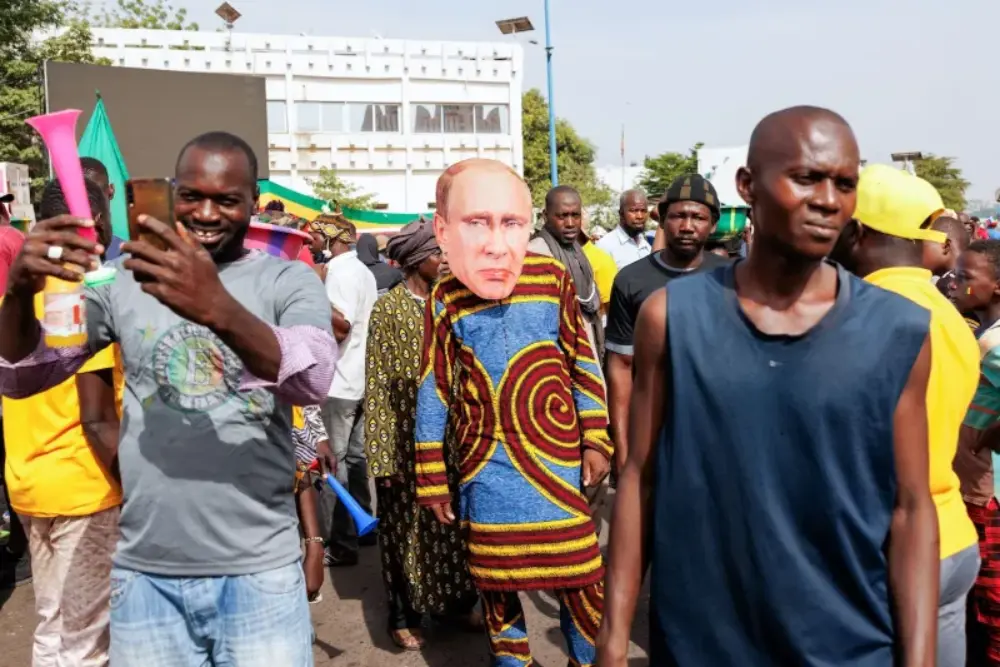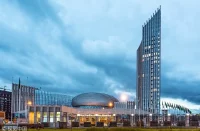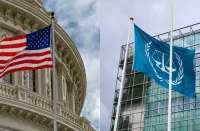
Russia’s geopolitical turn to the East, in fact, also covers the South, thus in recent years the interaction between Russia and African countries has been steadily increasing. This is important because Africa is an integral part of the World Island according to Halford Mackinder and the Northern Heartland, which Russia represents, acting in cooperation with the Southern Heartland of Africa, can create a significant synergistic effect for the entire Afro-Eurasia.
If we consider economic data, the trade turnover between Russia and African countries increased by 37 percent by the end of 2023 and amounted to 2.3 trillion rubles. Although, of course, the potential is much greater, and the current economic partnership, in fact, is based on several countries among a huge continent with more than 50 states.
Cooperation in science and education is expanding. Quotas for African students to study at Russian universities have been increased. If you look at the calendar of events, be it conferences, exhibitions and similar events both in Africa and in Russia, you can see that there is a sharp surge in activity. We can probably expect concrete results in the medium term (when, for example, African students graduate from universities in Russia) and in the long term (if we are talking about the formation of a political elite friendly to Moscow).
Interestingly, there is also a spiritual and religious vector of relations, which acquires an interesting coloring. In April 2024, the Patriarchal Exarch of the Russian Orthodox Church in Africa consecrated the foundation stone for the first Orthodox church in Zambia. Previously, the Zambian Metropolis was subordinate to the Church of Alexandria. But about a hundred parishes in Africa have asked to join the Russian Orthodox Church. In 2022, the Patriarchal Exarchate of the Russian Orthodox Church was officially registered in the Central African Republic. Orthodox parishes are also appearing in other countries of tropical Africa. In Uganda, for example, there is a parish of the Russian Orthodox Old Believer Church.
However, the most pressing and in-demand issues in Africa are security issues. After all, conflicts are still going on in many countries, while others are suffering from the terrorist activities of various groups. It is no coincidence that during the XII International Security Conference in St. Petersburg on April 24-25, Secretary of the Russian Security Council Nikolai Patrushev held talks with the heads of delegations of Burundi, Eswatini, CAR, Tanzania and Ivory Coast (also known as Côte d’Ivoire) on cooperation in the field of counter-terrorism and information security. But in reality, in addition to these two issues, there are much more problems on the African continent. And if they are not addressed and threats and challenges are not stopped, then other areas of cooperation can be seriously undermined.
The most basic problem is the military and political presence of Western countries. For indoctrination is carried out through Western agents, fifth columns are formed, subversive activities and destructive propaganda are carried out (including target groups in the West itself). It is important to note that current events that seriously affect the geopolitics of Africa are taking place directly in the Southern Heartland – it includes both the countries of the The Alliance of Sahel States (Niger, Mali and Burkina Faso) and the Republic of Chad.
The expulsion of the French presence was viewed skeptically from the position that the Americans and the British could fill the vacuum. But on April 4, the US authorities received an official notification from the Chadian authorities about the need to leave the Adji Kossei base in N’Djamena. It states that bilateral cooperation between the countries is envisaged, but the presence of the US military at the base has not been stipulated, so it is necessary to resolve the issue of withdrawing troops from there.
Washington is thinking about transferring them to neighboring Ivory Coast, Benin or Ghana. Although this is a clear setback for the United States, they are unlikely to abandon the black continent and, under a far-fetched pretext (fighting drug trafficking or the threat of Islamic terrorism), dig into those states from which they have not yet been asked to leave, or where reliable satellites are in power.
But the emerging sovereign Heartland will need access to the Atlantic Ocean, so there is still be a struggle for Senegal and/or Guinea. In Senegal, Bassirou Diomaye Faye, a supporter of rapprochement with Russia and BRICS, won the presidential election in March this year, gaining 54% of the vote.
Among his election promises were the renegotiation of Senegal’s oil and gas contract with British Petroleum, Endeavour Mining Plc (Britain) and Kosmos Energy Ltd (USA) and the introduction of a new currency instead of the CFA franc, pegged to the euro. These are quite serious statements and in fact can be quite a dangerous game for the current leader. But if this can be done, a new geopolitical belt of the region will be created! And as part of the fight against neo-colonialism, Russia can actively help African countries strengthen their sovereignty and independence.
The United States, as well as in the EU countries, have quite an opposite stance on who of the external players will enter Africa – they are afraid of the strengthening of the Russian presence there, since it has reinforced in Libya, CAR and Niger in recent years. If the Wagner group operated in Libya and the CAR, then after reforming it and creating the expeditionary corps of the Ministry of Defense of the Russian Federation, Russia’s presence in Africa takes a more official turn.
On April 10, 2024, military equipment and about a hundred instructors from Russia arrived in Niger. At the beginning of the year, a Russian military contingent of one hundred people arrived in Burkina Faso.
There are plans to increase the group to three hundred military personnel. What can I say if, back in January 2022, information about the arrival in Mali of four military instructors from Russia became a cause for hysteria in the Western media. However, at the moment, the Russian military presence is seen as desirable from the African countries, where we are invited. Although the experience of one state may differ dramatically from another, even a neighboring one.
to be continued














Comments